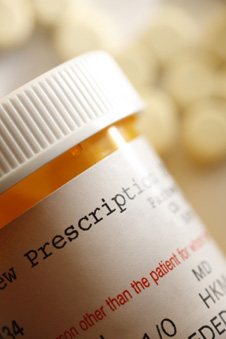In this section, you will find:
Why am I Having Low Blood Sugars?
Possible causes include:
- Eating less carbohydrate than anticipated at a meal or while snacking
- Increased activity or exercise
- Drinking alcohol
- Reactive Hypoglycemia
When you have type 2 diabetes and are treated with diet, exercise and blood sugar normalizing medications, it is very unusual to develop a low blood sugar from the diabetes treatment. These medications do not affect insulin secretion directly, and when your blood sugar is in the normal range, your body will naturally reduce its own insulin secretion.
Low blood sugars usually stem from situations that would cause anyone to get low blood sugars – even individuals who don’t have diabetes. Situations such as not eating enough, exercising vigorously, or drinking too much alcohol can all cause a low blood sugar. It is possible that an individual with type 2 diabetes can get a reactive hypoglycemia several hours after eating a large amount of simple sugar, but this is rare. Read below for more detailed explanations!
Eating less carbohydrate than anticipated at a meal or while snacking
Sometimes we don’t eat what we plan to eat OR we just don’t eat enough. When this happens, we feel hungry and can confuse the sensation of hunger with a low blood sugar.
The solution: Check a fingerstick blood test if you think you are having a low blood sugar. If you just haven’t eaten enough at the last meal or snack, your blood sugar will be in the normal range. If your blood sugar is truly below the normal range, consult with your medical provider.
Increased activity or exercise
Exercise generally uses up sugar calories, and makes the body more sensitive to the action of insulin. Individuals who don’t have diabetes usually consume more sugar, or carbohydrate calories when they are active, especially with strenuous activity.
The solution: Increase carbohydrate consumption as needed for prolonged or strenuous activity. Check a fingerstick blood test if you think you are having a low blood sugar. If your blood sugar is below the normal range, you may need to increase your consumption of sugar calories. Consult with your medical provider for specific advice.
Drinking alcohol
Alcohol can reduce the amount of glucose produced by the liver, and put you at risk for a low blood sugar.
The solution: Drink alcohol in moderation. Eat carbohydrates when you drink alcohol. Check your blood sugar.
Reactive Hypoglycemia
Some individuals with early stages of type 2 diabetes (or pre-diabetes) can develop low blood sugars when they consume too much sugar too rapidly. In someone predisposed to reactive hypoglycemia, a low blood sugar can be elicited during an oral glucose tolerance test (OGTT) or high sugar meal or snack. This situation occurs because the pancreas responds too slowly to the rising glucose or blood sugar, and doesn’t release enough insulin in the early part of the meal or OGTT. The blood sugar level increases because the earlier secretion of insulin was inadequate. Finally, the pancreas overreacts to the high blood sugar and releases too much insulin. This late, excessive secretion of insulin causes a low blood sugar – also known as reactive hypoglycemia.
The solution: If your have type 2 diabetes, avoid high sugar meals and snacks. Eat a balanced diet.
Why am I having high blood sugars?
Possible causes include:
- Incorrect carbohydrate counting
- Irregular blood glucose monitoring
- Taking medications that cause insulin resistance
- Inactivity
- Weight gain
- Increase in stress hormones
Incorrect carbohydrate counting
If you underestimate the carbohydrate content of your meal, your blood sugar may become too high. This is particularly true when eating out or when eating foods that don’t have nutrition labels.
The solution: Learn more about carbohydrate counting. Weigh and measure your food, or eat foods with carbohydrate counts that you already know. Research nutrition information online for food options at restaurants and chain outlets.
Irregular blood glucose monitoring
If you don’t check your blood sugar regularly, you may be unaware of high blood sugar. Then, when you do start to monitor, you may be surprised to find that the blood glucose levels are above target.
The solution: Check your blood sugar at regular intervals, and at different times of the day. Contact your health care provider if your blood sugar is above your target.
Taking medications that cause insulin resistance
Occasionally, it is necessary to take medications, such as steroids or niacin, that lead to insulin resistance.
The solution: Consult with your diabetes team on how to maintain glucose control.
Inactivity
Any decrease in your usual activity can decrease your insulin sensitivity and raise your blood sugar.
The solution: Monitor your blood sugar levels closely. If your blood sugar is running above your target, consult with your medical provider.
Weight gain
Increased weight causes resistance to the action of insulin. Weight gain is a very common cause of increased blood sugars.
The solution: Watch your calories and watch your weight. If you find you are gaining weight cut back on how much you are eating and consult with your nutritionist.
Increase in stress hormones
There are many reasons why your stress hormones might spike: infections, physical and emotional stress, medical conditions like thyroid or liver disease, pregnancy or puberty.
The solution: Work with your diabetes team on ways to maintain glucose control.
Self-assessment Quiz
Self assessment quizzes are available for topics covered in this website. To find out how much you have learned about Self-management Solutions, take our self assessment quiz when you have completed this section. The quiz is multiple choice. Please choose the single best answer to each question. At the end of the quiz, your score will display. If your score is over 70% correct, you are doing very well. If your score is less than 70%, you can return to this section and review the information.
